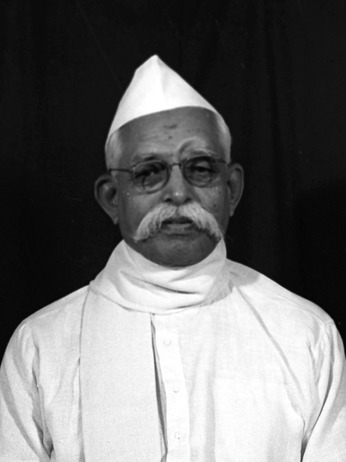Remembering Ravishankar Shukla: Architect of Madhya Pradesh on His Birth Anniversary
By Amit Kumar

Pandit Ravishankar Shukla (2 August 1877 – 31 December 1956) was a towering figure in Indian
politics whose legacy spans the freedom movement, linguistic advocacy, educational reform, and
post-independence state-building. As a leader of the Indian National Congress and an ardent activist
of the independence movement, he played a pivotal role in shaping the political and cultural
landscape of Central India.
Born into a wealthy Kanyakubja Brahmin family in Saugor, Shukla grew up surrounded by Indian
scriptures and traditional learning. His academic journey took him from Raipur and Jubbulpore to
Hislop College in Nagpur. In 1897, he attended his first Congress session at Amravati, marking the
beginning of a lifelong association with the party. After completing his law degree, Shukla established
a thriving legal practice in Raipur, gaining popularity for his intellect and oratory.
Shukla’s commitment to the nationalist cause deepened in the 1910s. He worked tirelessly for the
promotion of Hindi and founded the Central Provinces and Berar Hindi Sahitya Sammelan. As an
advocate of mother-tongue education, he launched the ‘Vidya-Mandir’ scheme during his tenure as
Education Minister in 1937–39, integrating practical skills with moral and civic education.
He was repeatedly jailed during the Civil Disobedience Movement and served as President of the
Raipur District Council. His contributions to grassroots education and nationalist awakening in the
Central Provinces were unmatched.
In 1938, Shukla was elected Premier of Central Provinces and Berar after the resignation of Dr. N.B.
Khare. He resumed leadership again in 1946 and played a critical role in integrating princely states
into the Indian Union after independence. Following the reorganization of states in 1956, he became
the first Chief Minister of Madhya Pradesh, a role he held until his death later that year.
Under his leadership, Madhya Pradesh saw the launch of major industrial and educational projects,
including the Bhilai Steel Plant. A progressive thinker, Shukla campaigned against illiteracy, purdah,
and dowry, while promoting women’s empowerment.
Shukla passed away on 31 December 1956, leaving behind a rich legacy of service and patriotism.
Survived by his wife and nine children, including Pt. Vidya Charan Shukla, he is remembered as the
true architect of modern Madhya Pradesh and a stalwart of India’s freedom struggle
